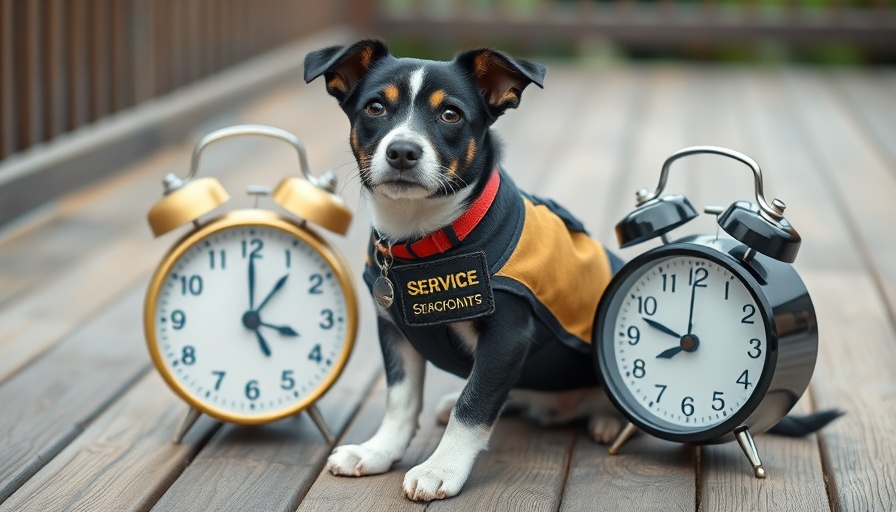
Understanding the Challenges of Owner-Training Service Dogs
Owner-training a service dog can be a rewarding yet daunting journey, especially for individuals living with fluctuating health conditions. The reality for many is that health changes can impact training ability, making it crucial to prepare in advance. By anticipating potential challenges, owner-trainers can better position themselves and their dogs for success.
Creating a Support Network for Service Dogs
Service dog trainers play a pivotal role in helping owner-trainers plan for unpredictable health events. Having contingency plans in place is essential. This includes discussing options for care with friends, family, or professional services, such as dog walkers and pet sitters. Such measures ensure the dog’s routine is not disrupted, whether the owner is facing a health flare-up or a medical emergency.
Developing Easy-to-Maintain Enrichment Activities
During periods when training may not be feasible, keeping a dog mentally stimulated is vital. Trainers can help create an enrichment strategy tailored to the owner’s capabilities. Simple activities, like pre-filled food toys or engaging scent games, can keep service dogs occupied and happy. This not only addresses the dog’s needs but can also alleviate stress for the owner.
The Vital Role of Pet Sitters and Caregivers
Establishing a comprehensive care routine that pet sitters or caregivers can easily follow is critical in maintaining the dog's well-being. Setting clear guidelines regarding feeding, bathroom routines, and exercise can help facilitate easier transitions during times of crisis. This structured approach gives owners peace of mind that their dogs will still receive the necessary care and attention.
Preparing for Emergencies: A Must for Every Owner-Trainer
Creating an emergency file is another fundamental step. This document should contain essential information, including the dog's vaccination records, care instructions, and emergency contact details. In situations where the owner cannot provide immediate care, this file becomes a vital resource for caregivers, ensuring the dog receives the right care without delays.
Assessing Service Dog Readiness for Medical Spaces
It’s important to analyze whether a service dog can accompany its owner to medical appointments or hospital stays. Many service dogs in training may not be fully mature enough for these environments. That's why planning visitation arrangements during longer hospitalizations can be beneficial, providing comfort to the handler and ensuring continued bonding.
Addressing Mental Health in Service Dog Training
Mental health can significantly affect the training process, particularly during difficult episodes. As highlighted in our reference materials, the key is to focus on basic commands that the dog has already learned. This practice reinforces the bond between dog and handler, cultivating a supportive environment even amidst challenges.
Additional Services for Sustained Training
When health challenges arise, exploring services such as board-and-train programs can help maintain training momentum. This option allows professionals to step in during critical times, ensuring the dog continues to develop necessary skills without placing additional strain on the owner.
Empowering Owners Through Knowledge and Resources
Facilitating open dialogues about varying needs is paramount. Ensuring that owner-trainers feel supported, prepared, and equipped with knowledge can make all the difference in the owner-training journey. Further education on training methods, health management, and legal rights surrounding service animals can empower owners to navigate their unique challenges more effectively.
Conclusion: Take Charge of Your Service Dog's Training Journey
Incorporating these actionable insights, training plans, and support strategies can significantly enhance the training experience for owner-trainers. By fostering a proactive approach towards potential health fluctuations, you can ensure a successful partnership with your service dog. For more personalized strategies and support, consider reaching out to professional trainers who specialize in working with service dogs.
 Add Row
Add Row  Add
Add 




 Add Row
Add Row  Add
Add 

Write A Comment